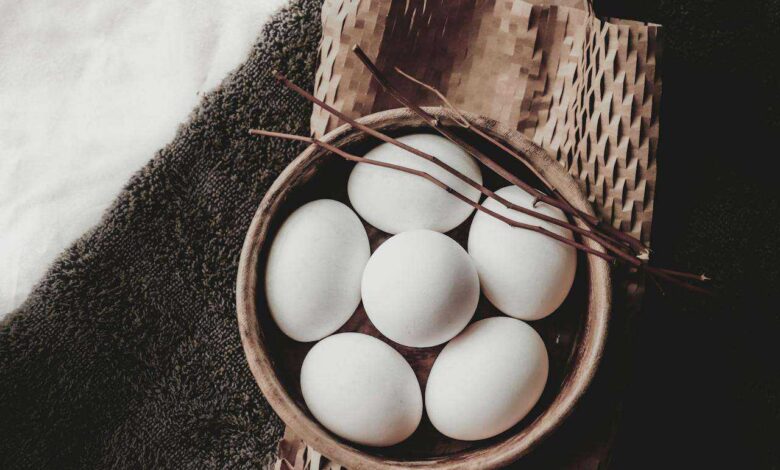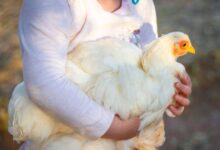
Welcome to the Duck Egg Harvesting Handbook, your go-to guide for mastering the art and science of collecting and storing duck eggs. Whether you’re a seasoned farmer or a backyard enthusiast, this comprehensive handbook will lead you through the steps to ensure a successful and egg-citing harvest.
Understanding the Egg-Laying Patterns of Ducks
Embark on the journey of understanding the unique patterns of duck egg-laying. Explore seasonal variations, the frequency of laying, and create ideal nesting conditions to encourage a prolific laying environment.
Duck Egg-Laying Insights:
- Seasonal variations and influences on egg production: Maximizing harvest yield.
- Frequency of laying across different duck breeds: Planning collection schedules.
- Creating optimal nesting conditions: Encouraging a comfortable laying environment.
Identifying Healthy and Fertile Duck Eggs
Dive into the art of identifying healthy and fertile duck eggs. Learn to discern size, shape, and shell integrity, ensuring that only the best eggs make it into your collection basket.
Healthy Duck Egg Characteristics:
- Optimal size and shape considerations: Indicators of nutritional well-being.
- Checking for shell integrity: Ensuring egg quality and freshness.
- Understanding signs of fertility: Essential for breeding purposes.
Choosing the Right Time for Egg Collection
Craft an effective egg collection schedule by understanding the importance of morning routines, consistent timing, and minimizing stress for both ducks and eggs.
Egg Collection Best Practices:
- Morning as the optimal collection time: Aligning with natural laying habits.
- Consistent timing for routine: Reducing stress and promoting regular laying.
- Minimizing disturbances during collection: Ensuring duck comfort.
Duck Egg Harvesting
Navigate the delicate process of duck egg harvesting with a step-by-step guide. From gentle handling to using the right tools and maintaining sanitary practices, ensure a smooth and hygienic collection routine.
Duck Egg Harvesting Steps:
- Gentle egg handling techniques: Avoiding damage and stress.
- Choosing appropriate tools for collection: Egg baskets, gloves, and more.
- Sanitary practices during and after harvesting: Ensuring egg safety.
Storing Duck Eggs
Maximize the freshness and flavor of duck eggs by delving into the intricacies of proper storage. Understand the role of refrigeration, storage duration, and the impact of egg positioning.
Duck Egg Storage Guidelines:
- Refrigeration for prolonged freshness: Preventing spoilage.
- Optimal storage duration: Balancing freshness and longevity.
- Importance of egg positioning during storage: Maintaining quality.
Cleaning Duck Eggs
Ensure the hygienic preparation of duck eggs by mastering the art of gentle washing, exploring natural cleaning methods, and adopting effective drying techniques.
Duck Egg Cleaning Strategies:
- Gentle washing with mild detergents: Removing dirt without compromising the egg’s protective layer.
- Exploring natural cleaning methods: Vinegar, baking soda, and beyond.
- Proper drying techniques: Preventing bacterial growth.
Candling Duck Eggs
Elevate your duck egg expertise by learning the art of candling. Explore transparency testing, growth observation, and early detection to assess egg viability and development.
Candling Duck Egg Benefits:
- Transparency testing for egg viability: Identifying potential issues.
- Observing growth patterns: Ensuring healthy embryo development.
- Early detection of irregularities: Enhancing the breeding process.
Addressing Common Duck Egg Collection Challenges
Navigate potential challenges in duck egg collection by addressing issues like soft shells, abnormalities, and laying disorders. Equip yourself with troubleshooting strategies for a successful egg harvesting journey.
Troubleshooting Duck Egg Collection:
- Dealing with soft shells: Nutritional adjustments and preventive measures.
- Addressing abnormalities in egg appearance: Recognizing and managing irregularities.
- Managing laying disorders: Seeking veterinary advice for optimal solutions.
Culinary Delights with Duck Eggs
Explore the culinary delights that fresh duck eggs bring to the table. From recipes to culinary tips and flavor enhancements, savor the fruits of your labor in delightful and delicious ways.
Culinary Adventures with Duck Eggs:
- Delectable recipes showcasing duck eggs: Baking, cooking, and beyond.
- Culinary tips for maximizing flavor: Techniques for optimal results.
- Flavor enhancements and pairings: Elevating your gastronomic experience.
Sharing the Bounty
Maximize the impact of your duck egg harvest by delving into community engagement, effective marketing strategies, and the art of thoughtful gifting. Share the bounty of your labor with others.
Sharing Duck Eggs Beyond Your Home:
- Engaging with the community: Establishing connections and sharing knowledge.
- Effective marketing strategies: Leveraging local markets, online platforms, and more.
- Thoughtful gifting practices: Building goodwill and fostering appreciation.
Duck Egg Harvesting Handbook
Conclude your journey with a celebration of success, a commitment to continued learning, and an embrace of the joy that duck egg farming brings. Your comprehensive guide to duck egg harvesting is a testament to your dedication and passion for responsible and rewarding poultry care.
FAQs: Duck Egg Harvesting Handbook
Q1: Can duck eggs be consumed raw, and are there any health concerns?
A1: While some people consume raw duck eggs, there is a risk of salmonella contamination. It’s recommended to cook eggs thoroughly to eliminate this risk.
Q2: How often do ducks lay eggs, and does it vary by breed?
A2: Ducks typically lay eggs every 24 to 26 hours, and the frequency can vary by breed and environmental factors.
Q3: What is candling, and why is it essential for duck egg farming?
A3: Candling is the process of shining a light through an egg to observe its contents. It helps assess egg viability, detect irregularities, and monitor embryo development.
Q4: How long can duck eggs be stored, and what’s the best way to preserve their freshness?
A4: Duck eggs can be stored for about 2 to 3 weeks in the refrigerator. To preserve freshness, store them pointed end down and avoid washing until ready to use.
Q5: Are there any special considerations for raising ducks in cold climates?
A5: Yes, in cold climates, provide adequate shelter, insulation, and access to unfrozen water. Breeds with cold-resistant characteristics are also recommended.








